Thin crusts, beach bods: a pizza place that knows its audience
Covid, lockdown, a heart attack and a triple bypass wiped out Olaf Bessenbacher as well as his businesses and bank account. A converted shipping container in Clifton is where he’s starting again.
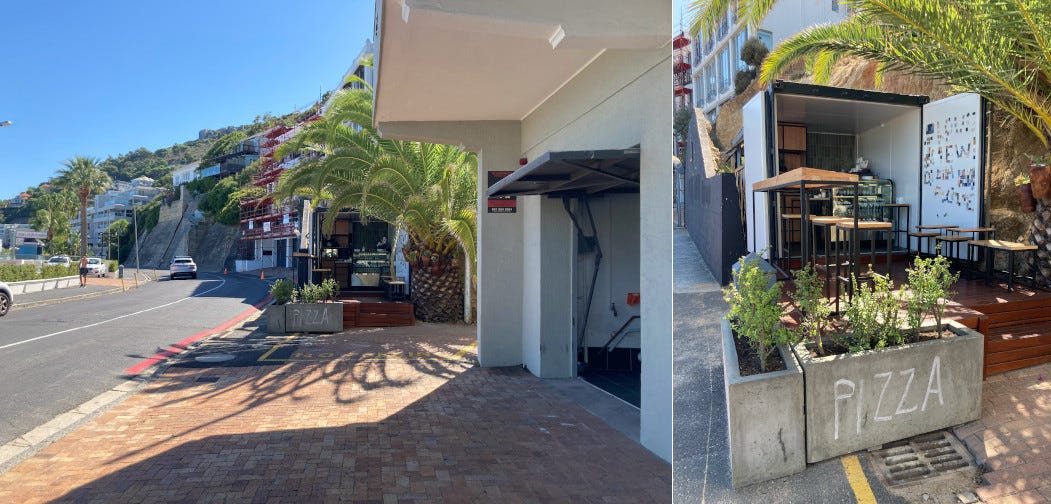
“People are very surprised that something popped up here,” says Olaf Bessenbacher as he takes a break from rolling out pizza bases. “It’s really been, I can say, pure appreciation that we exist. Very overwhelming, very nice. And a lot of interesting people here.”
The appreciation is perhaps not all that surprising. After all, the seaside suburb of Clifton in Cape Town has never had much of an eatery presence. There’s no neighbourhood coffee shop or casual café to grab a bite. There is one place, The Bungalow, an upmarket French Riviera-style seafood and sundowners spot with vistas of the Atlantic Ocean in front and the Twelve Apostles mountain range out back.
Apart from that, between Italian roadside restaurant Stepbrothers in Bantry Bay and Cape Town’s answer to Miami’s Ocean Drive in Camps Bay, the neighbourhood sandwiched between them consists of three parallel winding thoroughfares densely dotted on both sides with houses, bungalows and multi-storey apartment buildings that overlook 1st, 2nd, 3rd and 4th: picture-perfect stretches of sand and boulder that Cape Town is perhaps most famous for on the beach front. It’s an area where a single-car garage can sell for the price of a generously-sized house in other parts of the city, and has.
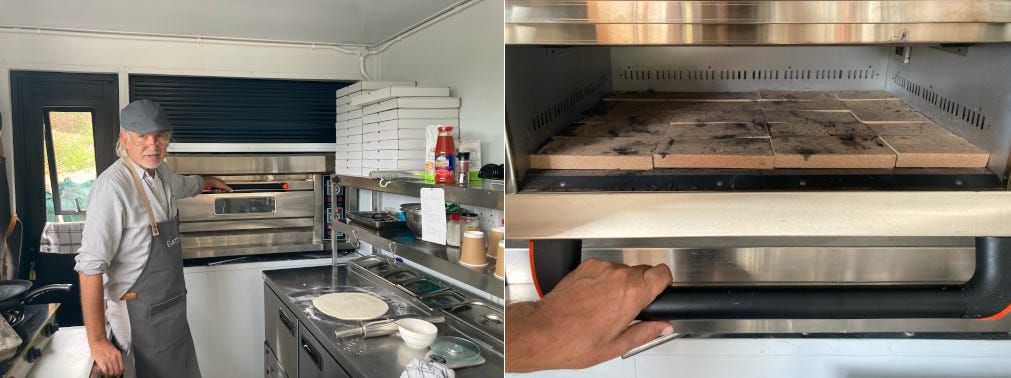
Bessenbacher was asked to develop a food concept for the site. Having started a food truck selling pizza two-and-a-half years ago which serviced the drive-in cinema and food market trade, and needing something mobile and compact once more, the initial idea in September last year was for another food truck. Pizza seemed, again, a sure thing. “Everybody loves pizza. Who can resist melted cheese?”
Prior to Dakacori, the name of his food truck, a friend had parked a pizza oven in the garage of an art gallery Bessenbacher owned at the time in Hout Bay. So he started Friday pizza nights in the basement “with the concept that there was not really even a menu. There were certain ingredients and people said what they liked and paid as they felt.”
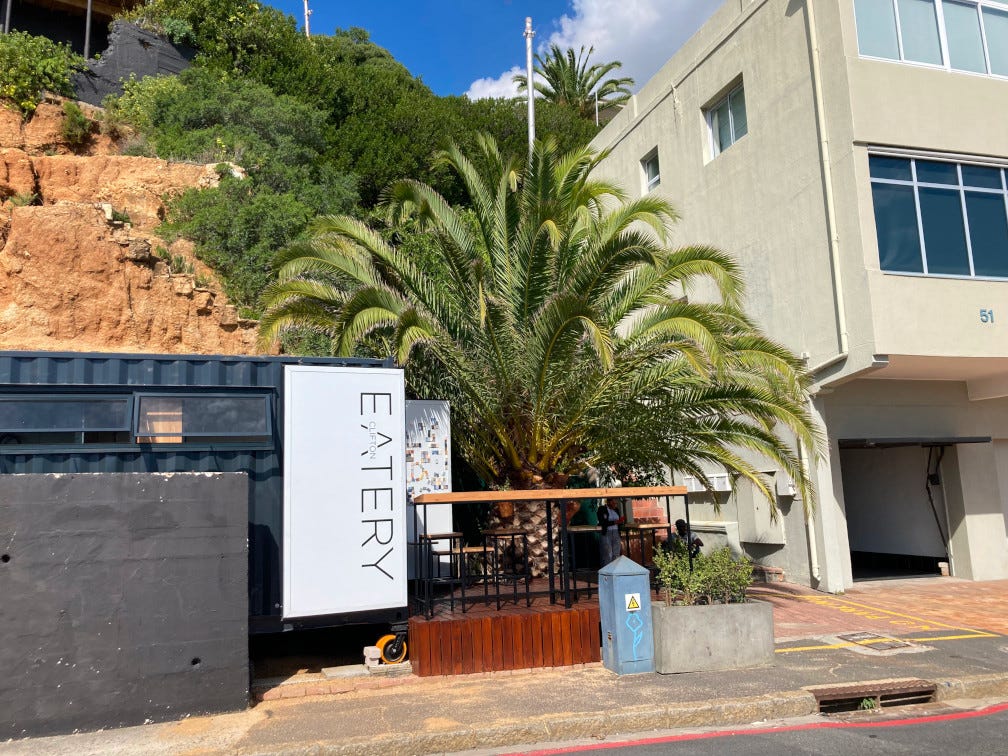
The layout of the Clifton site – a sliver of gravel driveway jutting into granite and sandstone – wound up proving more conducive to a larger container structure, also on wheels, that could open onto a small wooden seating area. It was set up in December but the festive season in a city that’s called “Slaapstad”* during the rest of the year was not a fertile period for obtaining the necessary permits and certifications, which is why it only opened a couple of weeks ago (*meaning “sleep city”, a rhyming take on the Afrikaans word for Cape Town, Kaapstad).
While he operates the business, Bessenbacher is not usually wearing an apron or in the kitchen. But the pizza maker couldn’t make it in that day. A South African political party called the Economic Freedom Fighters had gone all out to shut the economy and country down in a day-long protest action that made it difficult for some people to get to work.
“I work with a wonderful pizza maker, Khulani. I worked with him before in the truck and gallery; Khulani has made tens of thousands of pizzas in his life. He’s really very good. I like to be hands-on but when you manage the place, there are a lot of things to organise.”
Khulani Ngwenya has been making pizza for a decade, having started his career at one of the perennially busy Italian restaurants in the city, Limoncello Ristorante, when it was still situated in the City Bowl. His first job at the restaurant after arriving in town from Zimbabwe was as a dishwasher.
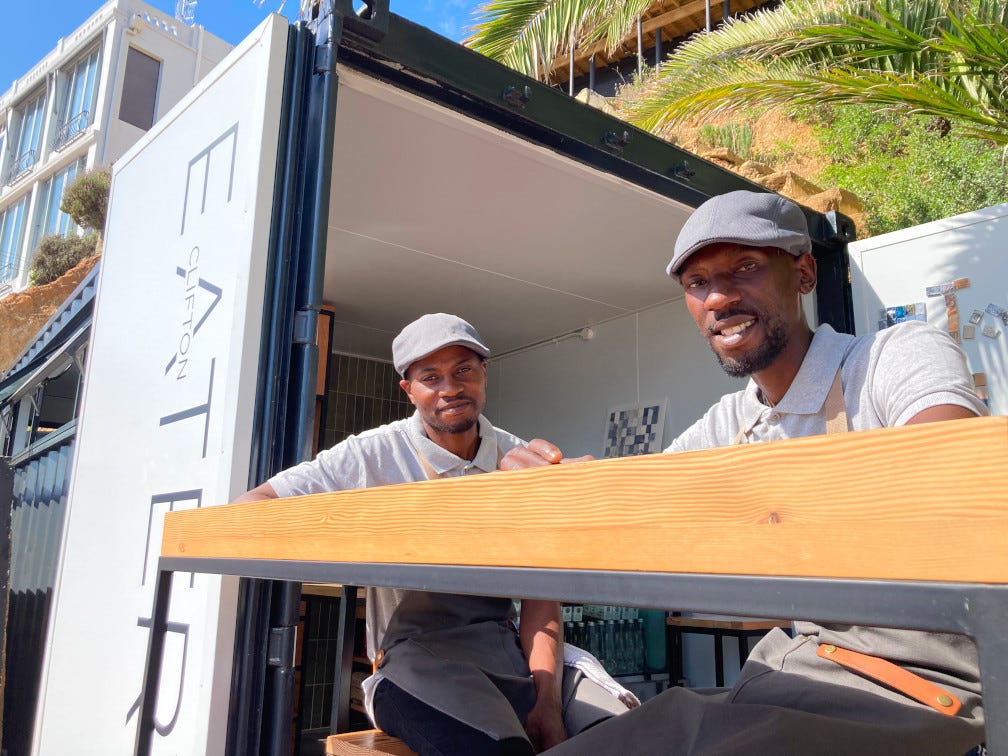
“I was just helping there to make pizza and then I end up learning how to make pizza. Luca (Castiglione, Limoncello’s co-owner) taught me how to make pizza. Even now, I still talk with him,” Ngwenya says.
During lockdown, Ngwenya went back to work at Limoncello in its current Noordhoek location and now he’s back working full-time with Bessenbacher. “Pizza is the only thing that I learn how to do so, for me, I like it,” he says.
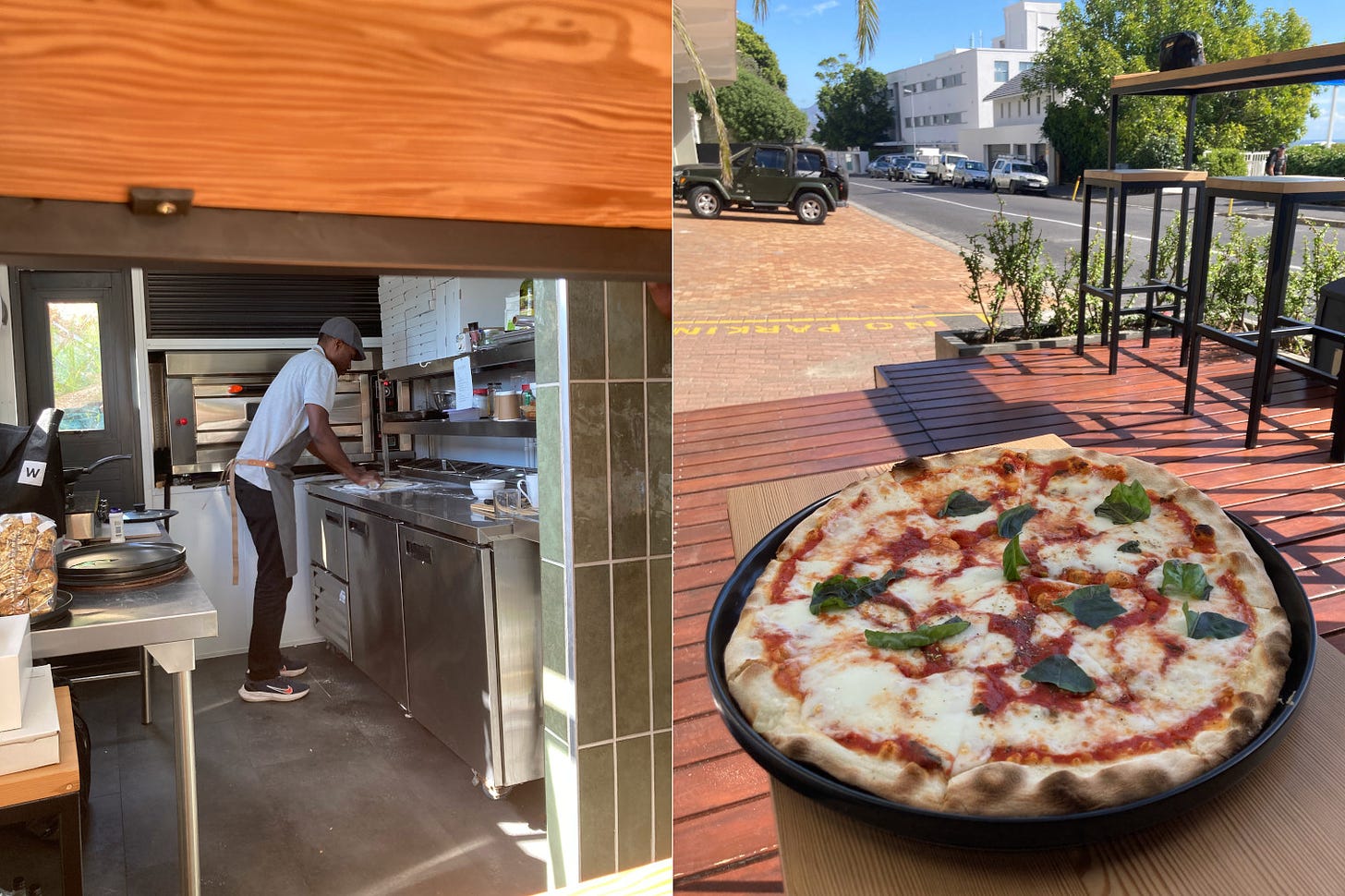
Bessenbacher’s hometown is Bamberg in the German state of Bavaria. As it happens, the day before he had a customer from Bamberg. “We were chatting a bit and she asked me where I’m from. I said from Bamberg; she went oh, me too. It’s not often,” he says, chuckling.
When he was 18, Bessenbacher went to Berlin and worked in the film industry as a producer for decades. After that he worked in an advertising agency for LG. It was a television commercial for an air conditioner that took him to Cape Town for the first time in 1999.
After a return work trip the next year, he decided to move there and about two years later he settled in Cape Town. “What is it exactly? I think it’s always better to be somewhere else. It’s also the feeling, the grass is greener on the other side. But the landscape is amazing, the sea’s amazing – specifically Cape Town.
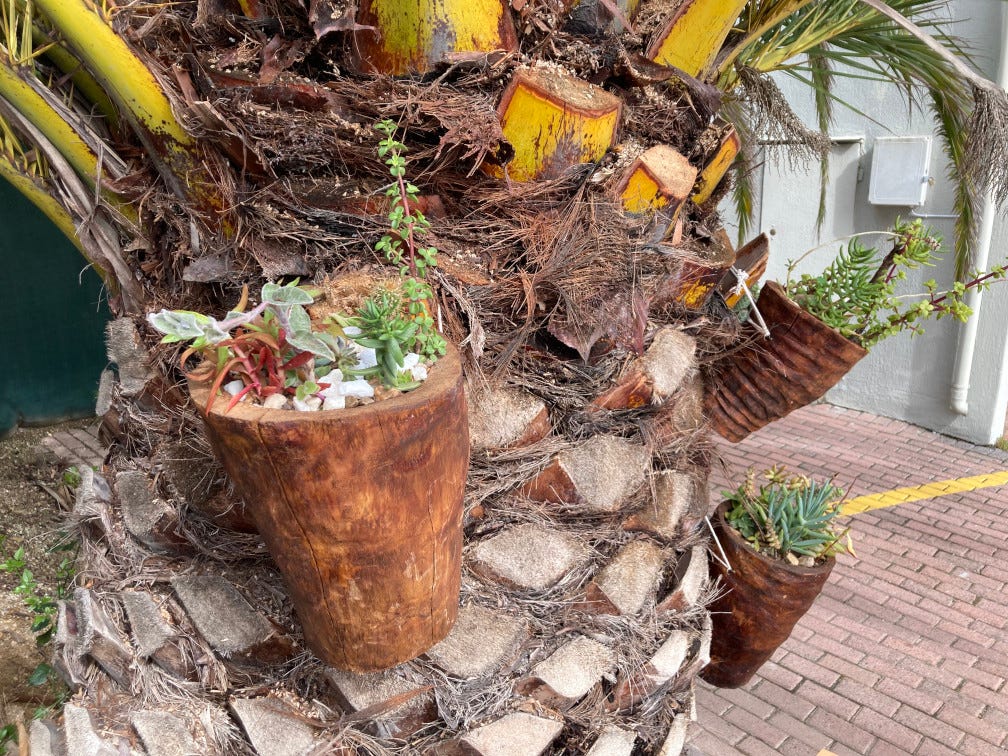
“I think it starts with the weather, even if the winters are also a little bit harsh here. They’re nothing compared with the German winter but as I’m getting older, I also feel, you know, it’s grey, water, cold. The very big difference to Europe is that the houses here are not built for winter. The building industry ignores winter and then people sit in their anoraks at home on the couch and I think that’s very terrible.”
Two of Bessenbacher’s four children go to the German school in town. “In the first place the German community was not the reason to come here; it was more the exotic, you know? But through the kids you get more integrated in the German community. But I would say I have very diverse friends. Also, all my kids are mixed colour.”
His surname comes from the name of a small village called Bessenbach not far from Frankfurt. “I’ve never really digged into that very deeply, but I’m pretty sure I’m the only Olaf Bessenbacher on the globe. In Germany, I think most of the Bessenbachers is my direct family.”
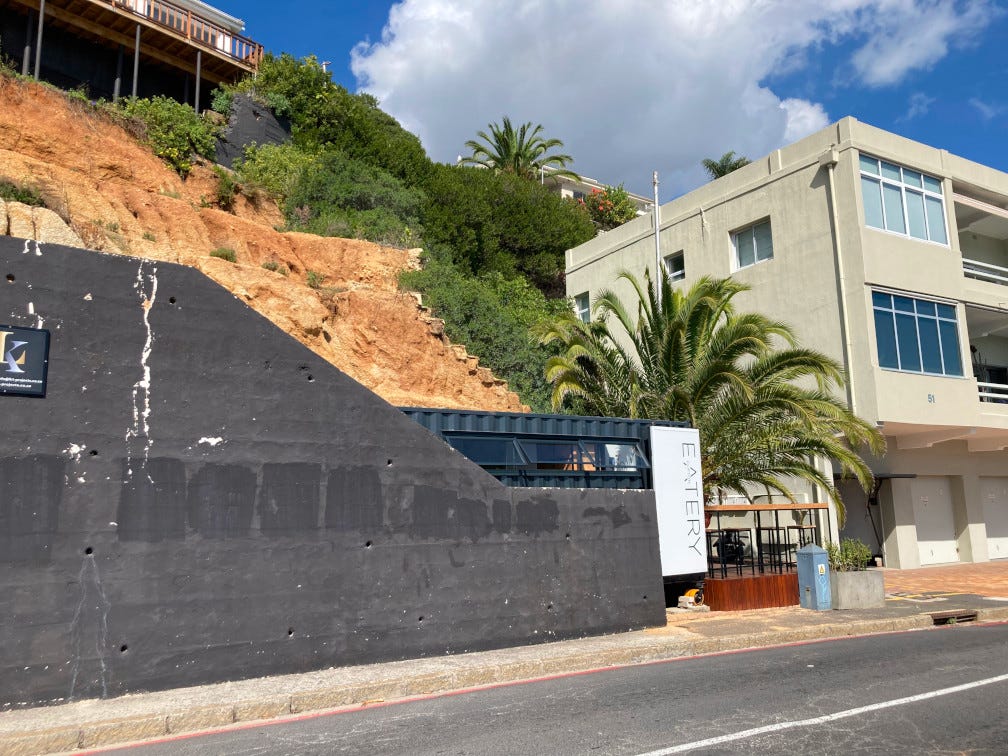
He adds that there is a fair number of Bessenbachers in the US. “There was, at a certain point, quite a big movement from poorer areas to the States and somehow I think that must have swept out a lot of people. And from what I can see on the map and when I look at this village, there’s not much. So I assume it was something where people took an opportunity and buggered off.”
Some others probably buggered off to South Africa later. “The whole world is here, it looks like, but there is a big portion of Germans. I think it’s a more laissez-faire lifestyle than in Europe. South Africa is also bureaucratic but I think Germany is much more bureaucratic.”
Wherever one is though, the food business is demanding. “And that is the thing about South Africa, I think. You can easily take on these opportunities and create your own opportunities. It’s more easy than it would be in Germany.”
Clifton Eatery is located at 51 Victoria Road, Clifton. It’s open every day from 7am till 7pm.

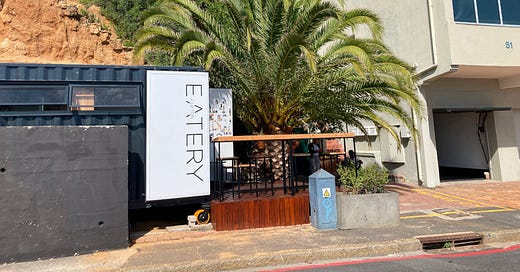


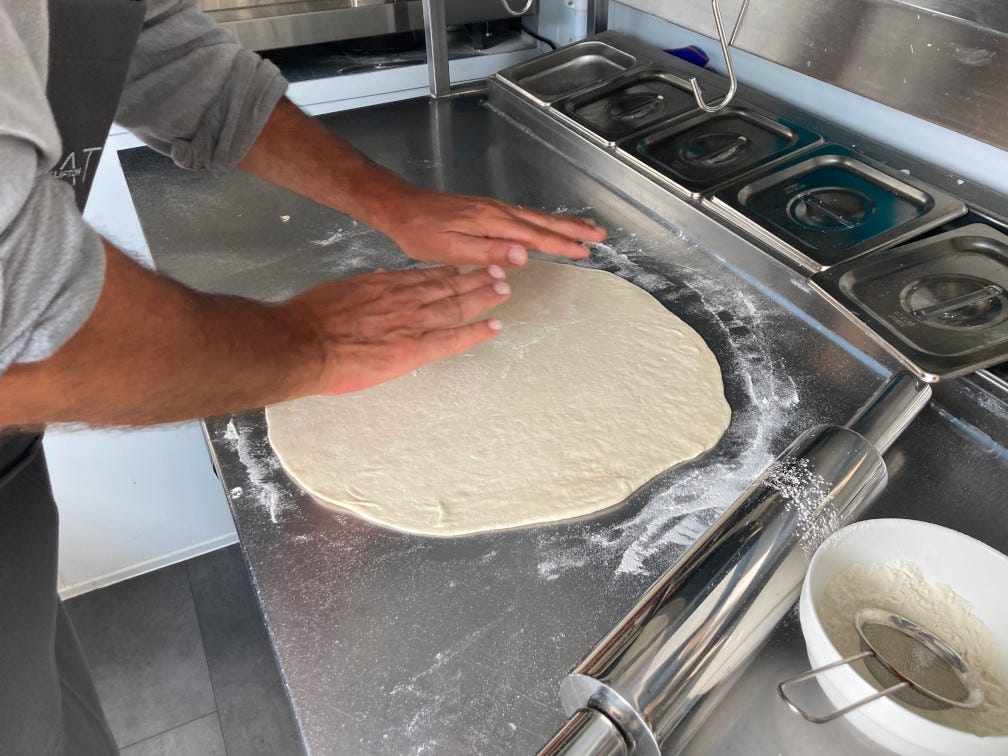
Nicely written article about a nice person , a nice business and a nice place. Thanks for sharing .
( Nice writer as well !)